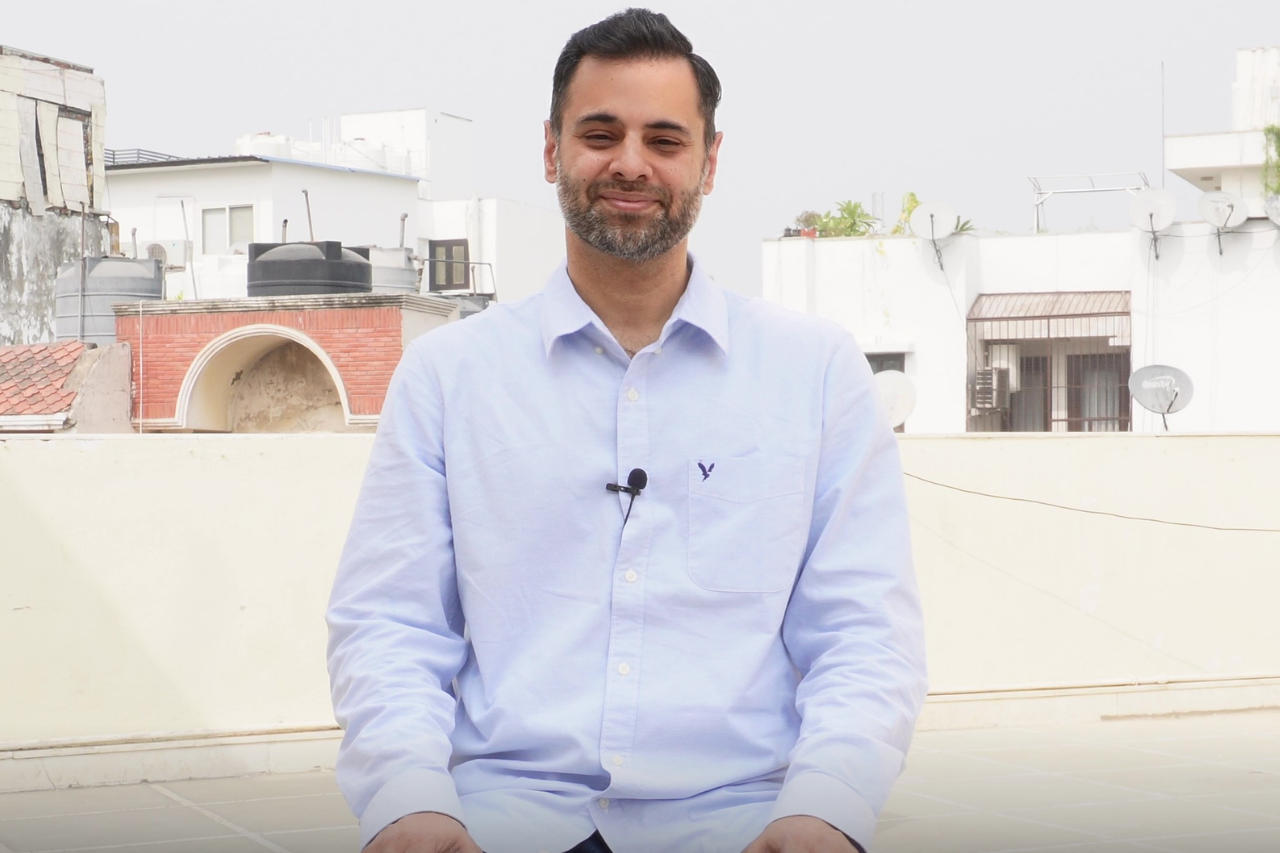Sushi: How can you differentiate random thoughts from a thought that you are meant to act upon?
Jagjot: Can you give me some context?
Sushi: We sometimes have so many thoughts and one is linked to the other. Sometimes a random one leads to something really important, something we are meant to do, or if we are embroiled in a problem and our mind is foggy, sometimes a solution shows up when we watch our thoughts, and then we see ourselves choosing that solution.
How do we know what to choose and what to ignore? What’s the basis for decision-making, even if we only watch it happen? Is it just the interplay of energies? Who decides on the decision?
Jagjot: The idea of something being important or problematic is based on the mind’s conditioning. For example, people from western society see poverty in countries like India and Africa and come to the conclusion that people there are suffering and need help.
Now I have lived in the poorest states of northern India (like U.P.) and have personally seen and met people living in abject poverty there, but in the same group, I had met some of the happiest people.
Yes, they do crib and complain about their suffering, but it’s more for entertainment’s sake. They work as laborers during the day, get only one meal, make some arrangements for a night’s high, and sleep.
They don’t suffer from depression or anxiety because, in their case, there is nothing to compare with. They are not aspiring for a glorified future. They just live day to day and make the most of what they have. They don’t need any spiritual teaching to tell them how to live.
They sleep like a log even in the severest of heat or cold. One time I asked one of them, “How would you manage if you contracted a severe disease?” And the reply came immediately, “Jo Bhagavan ko Manzoor (Whatever be the Will of God).”
Now I am not saying that there’s no suffering. And this is not fatalism. But you see, the real suffering only comes in comparison to the “other.” All of the problems come from mind’s identifications that are based on comparison – somewhere in the spectrum of good and bad. Every troubling thought or emotion arises from that spectrum.
And the whole concept is that you have no control over what thought arises in the next moment. Your reactivity (good or bad in your perception) will depend on conditioning.
So the crux of the matter is that when a situation presents itself, all you can do is make a decision, but the outcome is not in your control. You will make decisions based on your conditioning. In other words, the decision had already been made because conditioning is nothing but God’s Will.
The mind contemplating an action for future thoughts and situations is diverting the attention from now. And why? Because the mind seeks security. It finds comfort in predictability. But that is not how life flows.
From the absolute viewpoint, there is no individual making a decision. It is the interplay of the same energy. The mind and body, which seems so real right now, are temporary. They arose and will disappear. All problems stemming from the mind are as illusory as the mind itself.
Do you get to know where this question of acting on some thoughts and ignoring others comes from? Deep down, there is a concern that attaches to the individual.
What I’m saying is that there’s no “you.” Therefore, make decisions any way you like and with the best of intentions for yourself and others. But know that it’s not you making a decision, and the outcome is already decided. Therefore, “you” cannot make a right or a wrong decision. And hence, there should be no burden (unless it is the will of God).
Right and wrong is just a concept given to you by society. I’m not saying become reckless. Operate with whatever is your understanding at the moment, and then leave the rest.
Sushi.: Have you experienced your thoughts making a decision and your body obeying that decision? How does your watching affect that decision?
Jagjot.: The watching or watchfulness does not affect decisions. It simply “sees” them. It is an impersonal seeing. Right and wrong, and consequences of decision making like good or bad, are all contemplations of the mind.
The mind may contemplate scenarios according to conditioning, but the witness is eternally free. That’s what I mean by freedom. Everything is allowed in that. Right decisions. Wrong decisions. Mistakes. etc.
When you see an object (a physical object or thought, emotion, sensation, etc.), the first thing that illumines it is the witness. The mind comes afterward to create interpretations (good thought, bad thought, etc.) Even if you see this scientifically, there is a very small time gap between you seeing an object and your brain making sense of it.
For example, when you see a flower, there is a time your brain requires to process the fact that what you’re seeing is a flower. Your brain will take further time to assess if it’s beautiful, ugly, or neutral. So “you” – the person, are always seeing the past, while the witness is the present or now.
The same thing happens with thoughts and emotions. The witness is the first to illuminate the content. The mind, superimposed on the witness, takes time to label the thought, feeling, or sensation, good or bad, or pleasant or unpleasant, based on conditioning.
In other words, watchfulness or witnessing is the stillness of the mind. In witnessing, there is no sense of a person or individual “seeing” anything. Till there is a person watching something, it is only the mind. And the mind is extremely clever. It can even pretend to be witnessing. So how do we know if witnessing is happening?
We don’t!
Witnessing happens in the absence of “me.” In deep sleep, there’s no “me.” That’s why it’s peaceful. Only when we wake up, do we say that “I slept.” We can only think about the peace we experience in deep sleep in the waking state.
Witnessing is the same peace in the waking state. In witnessing, there is no center but an infinite field in which the manifestation happens.

